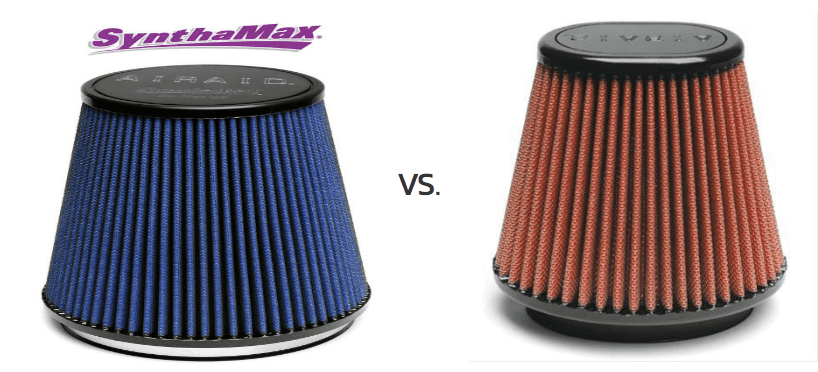
Pepsi or Coke? Chocolate or vanilla? American League or National League? Manual or automatic? Wet or dry? Just about everybody has an opinion on those choices and many more, and just about everybody thinks theirs is the right one and the other guy is wrong. It’s the same with wet or dry performance air filters for your ride, or more correctly; oiled air filters or dry air filters.
All you have to do is check out any of the literally hundreds of internet forums and car enthusiast message boards and you will get screens full of opinions on the subject. Oiled filters are the only way to go. Oiled filters will damage your engine’s MAF sensor. Dry filters are the only way to go. Dry filters let tons of dirt get through to damage your engine’s pistons and rings. The debate seems to never end and the proponents of each side are positive they are right. Sort of reminds me of the U.S. Congress!
And, as it usually is in these situations, the truth lies somewhere in the middle. The fact is that both types of filter will help improve fuel mileage and performance. They just each go about in a slightly different way.
Most dry, or non-oiled, filter elements are made of several layers of paper, although some on the market do use a cotton gauze fabric. These filters generally will trap dirt particles down to less than ten microns in size. (What is a micron? Without getting all scientific on you, just know that it’s tiny, very, very tiny.) They do this with multiple layers and in some cases they will be slightly more restrictive than an oiled filter but still much better than your OEM filter. Both types of filters may be cleaned once they have become clogged.
By contrast a wet, or oiled, air filter is made up of a few layers of cotton gauze coated with a slight amount of, you guessed it, oil. No, it’s not your favorite brand of 10W-30 but specially formulated air filter oil designed for the job. Because the oil acts like a sticky dirt trap, the openings in the filter material can be slightly larger than those in a paper filter and this makes this type of filter slightly less restrictive. A less restrictive air filter will flow more air thus most manufacturers of oiled filters claim you will get more power and better throttle response. (Some of those claims are “best case scenario” depending on the year/make/model/engine of your vehicle, however so beware.) When an oiled air filter gets dirty it can be cleaned, re-oiled, and put right back in service, which is why most manufacturers call them lifetime air filters.
So which is better? Well, we started this by asking Pepsi or Coke, etc., etc. so which is your preference? Both types of filters are good and will do a good job of keeping the crud out of your engine they just go about it differently. One good rule of thumb is if you have installed a performance cold air intake on your ride, you should go with whatever type of filter came with your intake. If you already have an oiled filter in there, you should clean it and re-oil it according to the manufacturer’s instructions. If your cold air package came with a dry element filter then you should replace it with the same when it gets dirty. And again, just check with your system’s manufacturer to know when that replacement interval is.
If you need any more information on this subject or you’re ready to buy your next cold air intake or you just need a replacement filter give our guys at 4 Wheel Parts a call. We are the experts and can help you make the right choice for your vehicle and driving conditions.
If you live in the Kansas City area you are in luck because you can stop in at any of our 4 Wheel Parts stores and see the different types of filters we carry and get face-to-face advice on just what you need.
So whether you like Coke or Pepsi, Kleenex or Puffs, dry filters or oiled, the choice is really up to you!



2